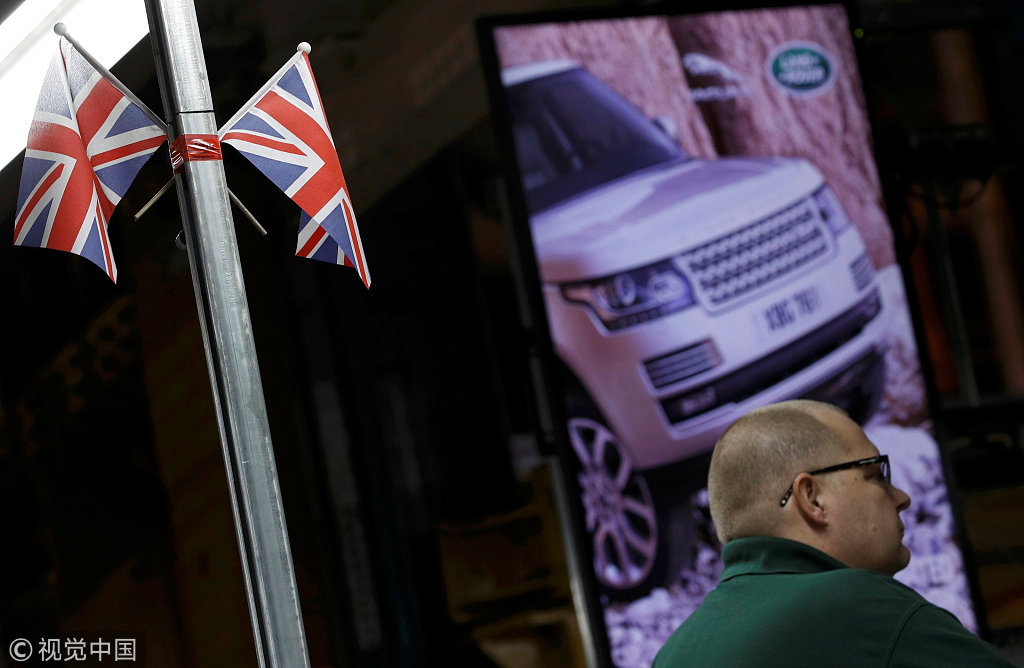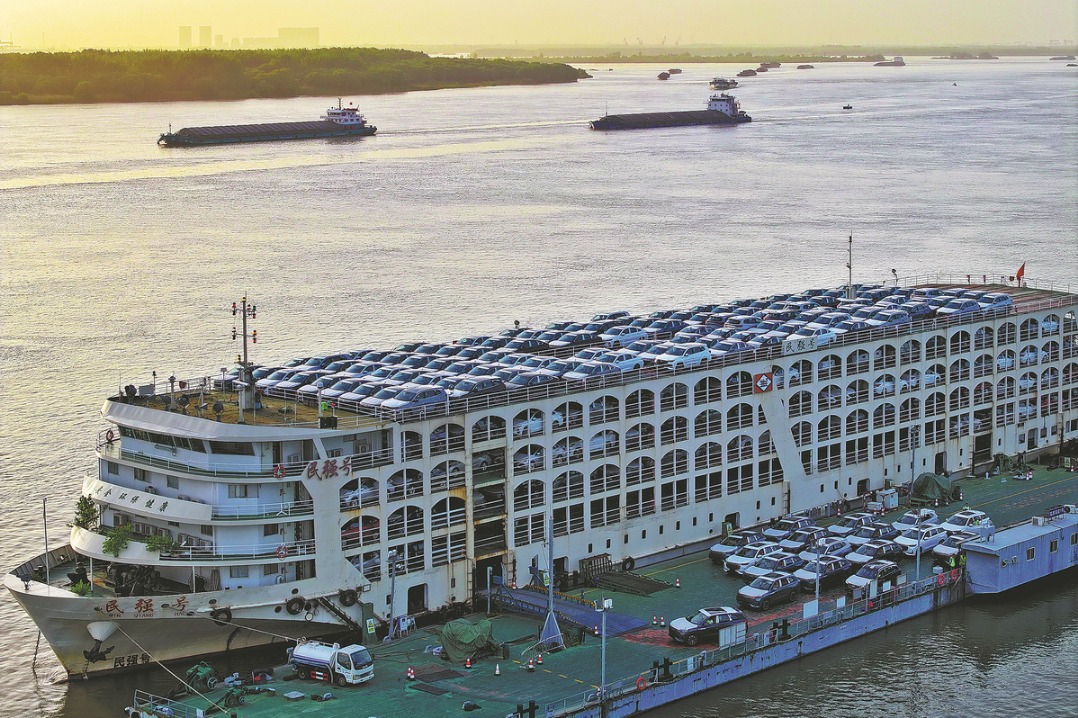Brexit just part of bitter cocktail for UK car industry
By Harvey Morris | China Daily Global | Updated: 2019-03-12 02:41

Other factors point toward bleak times ahead
Uncertainties over the future of the United Kingdom if it leaves the European Union have prompted a number of carmakers to cut back their operations or to shelve expansion plans at the cost of thousands of British jobs.
For overseas producers such as Nissan, Toyota and Honda, the UK has served as an entry point into the whole of the EU. But if the country heads out of the bloc, given the uncertainty about the future tariffs, it makes little sense to expand there.
But it is not only Brexit that is threatening the future of UK-based carmakers at a time of rapid industry transformation around the world. When Honda said that a decision to close its Swindon plant in South West England was not linked to Brexit uncertainty, few people in Britain or beyond believed it. Honda was among industry heavyweights that had previously warned the UK government of the potential costs of leaving the EU.
Britain's car industry has long depended on investment from international companies seeking access to the wider European market. More than half of UK-produced vehicles are exported to the EU, and many of their components come from elsewhere in Europe.
Some manufacturers, including Nissan, have directly blamed Brexit uncertainty for their decisions to axe scheduled production plans.
Honda, however, cited unprecedented industry-wide changes that go well beyond UK-specific factors. It put the challenge of increasing electrification squarely at the top of a list of reasons to shut the Swindon plant and redirect its global operations toward regions where it expects to see high production volumes.
"In light of the unprecedented changes that are affecting our industry, it is vital that we accelerate our electrification strategy and restructure our global operations accordingly," said Katsushi Inoue, Honda's chief officer for European regional operations.
The Japanese company's former UK boss Philip Crossman told Autocar magazine that he believed the decision also in part reflected declining sales in China and the United States, the world's two top car markets.
Honda has doubled sales in China, the world's largest car market, since 2013. But, like its competitors, it had a tougher year in 2018 as Chinese sales fell for the first time since the 1990s.
China accounts for one third of global electric car sales and, if Honda and others are to tap that market, it makes sense to move operations closer to its main customer base.
Global electric car sales topped one million in 2017 and the target is for electric vehicles to total 30 percent of the global market by 2030, to help fulfil the terms of the Paris agreement on climate.
The Chinese government is already encouraging electric car production with new rules preventing companies selling only conventional fuel cars. By next year, carmakers must include a minimum of 12 percent of electric vehicles in their fleets.
China shook the world car industry in 2017 with the announcement of its long-term plan to ban all fossil fuel vehicles. No date was set but at the time industry experts calculated that the prohibition could come into force as early as 2030, giving the industry just more than a decade to adapt.
The shift to electric cars in such a dominant market presents a challenge to traditional carmakers as well as an opportunity for all-electric newcomers such as Tesla.
France and the UK are among a number of countries that have announced bans on fossil fuel cars by 2040 but their domestic sales account for only a fraction of the Chinese market.
Another factor in the calculations of Japanese carmakers with operations in Europe is the new Japan-EU trade deal. It involves a gradual reduction in tariffs on cars made in Japan from 10 percent to zero over an eight-year period. That gives the Japanese an incentive to maximize production at their factories in Japan.
In the face of these challenges, industry watchers believe the UK has been dragging its feet in coping with change even if the impact of Brexit is removed from the equation.
Car buyers who were once encouraged to buy diesel vehicles for environmental reasons are now told to avoid them. New taxes on diesel, and confusion among the public about future vehicle policy, have seen domestic diesel sales slump. That was seen as one of the reasons, aside from Brexit, why Indian-owned Jaguar Land Rover decided to reduce its UK workforce.
Meanwhile sales of electric cars in the UK are lagging behind those in the EU. The government of Prime Minister Theresa May has officially promoted a switch to electric vehicles at the same time as cutting the subsidy that applied to plug-in and hybrid cars.
"Removing the grant for plug-in hybrids is totally at odds with already challenging ambitions for CO2 reduction and sends yet more confusing signals to car buyers," said Mike Hawes, head of the UK's Society of Motor Manufacturers.
Even without Brexit, it seems, the future of the industry in the UK is already looking grim.






















